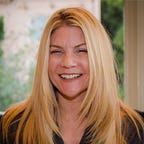Young Global Climate Leaders School Us on How to Approach Climate Intervention
Last month during COP26 in Glasgow, Scotland, SilverLining hosted a groundbreaking event with climate experts and young climate leaders from organizations around the world — an open dialogue on research in solar climate intervention in the context of the devastating realities of near-term climate change faced by young climate leaders from Ghana, Qatar, Honduras, and France.
Hosted by SilverLining’s own Maddy Karlsberg Schaffer of Scotland and Aarushi Shah of India, the event first featured a presentation from Sarah Doherty, the Program Director at the Marine Cloud Brightening Project at the University of Washington, and Jessica Medrado, a young Research Fellow from Brazil working at the Palo Alto Research Center (PARC), on the science behind marine cloud brightening.
Our event then shifted to an intergenerational dialogue and panel discussion amongst members of the Global Youth Initiative Steering Committee, including Joshua Amponsem, Executive Director of Green Africa Youth Initiative from Ghana; Béatrice Coroenne of YOUNGO’s TechMech Working Group from France; Ricardo Pineda Guzman, Director and Co-founder of Sustenta Honduras; and Neeshad Shafi, Director and Co-founder of the Arab Youth Climate Movement Qatar. They were all also delegates in the UN climate negotiations.
These young leaders unveiled for the first time their Youth Call to Action on Climate Intervention. This first-of-its-kind document outlines the need for research into climate interventions along with principles to move the research forward with global cooperation, fairness, and mutual understanding. The YCA includes proposals under the categories of Education & Awareness, Research, Youth Cooperation & Inclusion, Youth Agency & Empowerment, Youth Advocacy, and Guiding Principles. The impressive document works to ensure equity and diversity when moving this research forward by highlighting voices from all over the world, including the global south.
The young panelists fielded very difficult questions and a statement of opposition from an activist that put forward nearly every customary attack on this research and the people supporting it, including the panelists. The young leaders on our panel dealt with these issues and made the case for research better than I have seen anyone do in any dialogue, of any age or expertise, on climate intervention/geoengineering, ever.
They eloquently and passionately discussed the effects climate change is already having on their home countries and the realities they face with a continuing worsening climate through 2050. They articulated that while climate intervention is not the solution to our climate problems, we need to know if it is a potential option to help people in the near term — making the research so crucial. They covered all of the key aspects of the rationale for research as well as any academic or professional in the field. They addressed passionate, angry people with patience, grace, and reason while allowing the conversation to extend to ensure their concerns were covered.
For people who care about dialogue and communication in this area, and how to respond to the harshest and most personalized attacks, this exchange is a critical viewing. It also illustrates how opponents emphasize certain terms and examples to damaging effect.
Most importantly, it is a powerful example of why talented people from the global south, from younger generations, and from diverse communities speaking directly on these topics are the most effective messengers. They do not need anyone to speak for them. They have enormous wells of talent, leadership, and character to draw from and have things to teach the rest of us that we desperately need.
This is a first for me, but this conversation is the only piece of content that I would ask that you make time to watch — if you need to save time and know the science, start at 37:29. If I had to choose only one thing I could ask anyone to read, watch, or listen to on this topic, it is this. Of all of the remarkable people and efforts we support, it is the thing I am most proud of (while playing the smallest role) in our work to date at SilverLining.
If you would like to know more about our Youth Initiative, please reach out to me; you can also register for more information here. To hear why young voices are needed in the climate dialogue, read our own Maddy Karlsberg Schaffer’s piece here.
